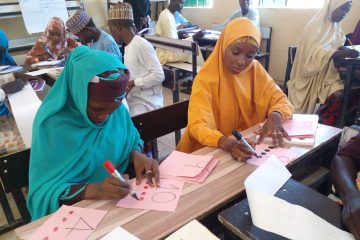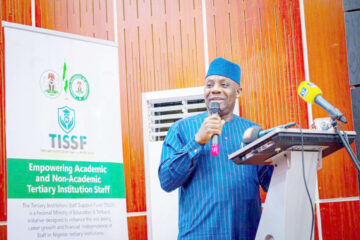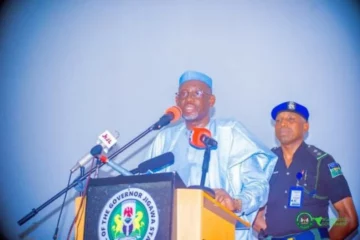By Taiwo Adeniyi
Three Nigeria-Irish teens have emerged champions of Technovation Girls.
Rachael Akano, 16, Margaret Akano, 17 and Joy Njekwe, 17, are the Senior Division Grand Prize winners with their application, Memory Haven, designed to help over 500,000 people in Ireland whose families have been impacted by dementia.
They said with the coronavirus restrictions, it was hard for them to meet but relied on social media. “It was difficult but we made it work. The main aim for all of us was creating Memory Haven, even without knowing the amount of success that was going to come from it,” Joy said in a video posted by Technovation.
The finalists received a portion of the about $30,000 being awarded, to help further fund their education in STEM, and assist teams in bringing their products to the market.
The trio defeated 5,400 other students from 62 countries that created more than 1,500 mobile applications addressing problems ranging from COVID-19 to climate change.
The Nigeria-Irish team was also voted as this year’s People Choice Award recipient, taking the honour after five Nigerian girls and students of Standard Bearers School, Lagos won the 2019 Global Technovation People’s Choice award for their app, Hands out.
Rachel told NPR news that when an Irish news outlet announced that they made it to the finals on Twitter, “We got amazing comments, but the negative ones just naturally stick with you. People said we weren’t Irish and that we didn’t deserve to represent the country. They put a monkey face (to represent a black girl’s face). Just crazy, crazy oceans of racism for absolutely no reason.”
Despite the backlash, the threesome went on and emerged winners of the competition challenging young women to develop an application that can solve a problem in their community.
During the 12-week project, Margaret was the project manager; Rachel the financial manager while Joy was the sales manager though they all worked on the application. The girls were guided by a mentor, Evelyn Nomayo.
Technovation Girls is an annual competition hosted by Technovation, a non-profit organisation that empowers girls to become leaders in technology.
Margaret, who is currently in medical school, hopes to specialise in precision medicine, which deals with how technology can help people in the medical world. Rachael plans to go into international business and IT.
How Memory Haven helps people with dementia:
The app has six features: photo album, music, outreach, face and voice recognition, memory games, and reminders. The memory game allows (a user) to put their cognitive ability to the test while promoting memory retention in a fun way and improving focus and speed.
The face and voice recognition feature makes it easy for users to identify their friends and family. Research suggests that musical memories are the least affected by dementia, so we created a music feature for personal playlists.
Memory Haven can be used by both patients and caregivers. Its six features target three problems faced by those with dementia: memory loss and difficulty with recognition and speech. A reminder feature, for example, alerts both the patient and caregiver that it’s time for medication, while photo albums allow users to flip through tagged photos identifying who is in the image.




